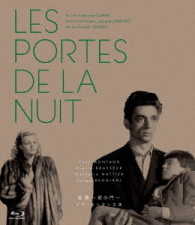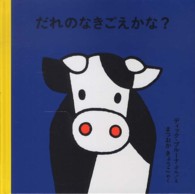- ホーム
- > 洋書
- > ドイツ書
- > Humanities, Arts & Music
- > Linguistics
- > english linguistics
Full Description
This volume brings together work by renowned scholars in the field of foreign/second/heritage languages and literatures who employ a variety of scholarly tools to examine opportunities associated with literature as a force for rehumanizing and invigorating target language (TL) education in the 21st century. Offering viable avenues for reconciling historic differences between language pedagogues and literature educators, their work demonstrates that language pedagogy and literary studies are not divergent or competing disciplines separated by firm barriers, but rather convergent, interdependent, mutually beneficial, and genuinely complementary areas of inquiry.
Each chapter foregrounds the multilayered value of target language literary education, aligning it with competencies that reside at the core of broader contemporary educational and societal priorities and aspirations. The contributors connect literature education to a wide array of goals, including not only literacy, communicative competencies, critical reading, and critical thinking, but also social engagement, global citizenship, intercultural sensitivity, and symbolic competence. Without minimizing the significant challenges facing language educators today, Rehumanizing the Language Curriculum argues in various ways for rehumanizing language education as the most effective means for overcoming pressing challenges, for addressing urgent priorities, and for approaching our full potential within the diversity of this vibrant community of scholarship and practice.
"Rehumanizing the Language Curriculum should be compulsory reading for educators wishing to integrate language and literature teaching. This is a welcome and much needed contribution to rehumanizing language education in the 21st century."
—Werner Delanoy, University of Klagenfurt
"Featuring an international cast of contributors, this volume provides new insights into the role of literature in 21st century language education. Through various theoretical, ideological, and pedagogical lenses, the chapters present innovative and thought-provoking ways to reconcile the language-content divide and teach language and literature as interdependent parts of a whole. The result is a volume that encourages readers to value and embrace the range of disciplinary content and scholarly perspectives comprising language programs."
—Kate Paesani, University of Minnesota
"This wide-ranging collection highlights the importance of literature education in the language classroom, critiquing reductionist views of language education and making insightful connections between areas such as literary reading, deep reading, language education and general educational competencies. A thoughtful and often provocative collection, it provides a variety of lenses for understanding the ways in which second language learners can engage with literature, and a clear illustration of the immense world of new possibilities that is opened up when using literature."
—Amos Paran, University College London
"Rehumanizing the Language Curriculum is an ambitious, wide-ranging, yet readable collection of chapters which makes us rediscover the role of literature in language education. Addressing current issues such as intercultural communication, ecology, and diversity, this book proves the practicality and versatility of literature. In the gloomy educational environment in which pedagogical effects are mistakenly visualized statistically, uniformly, or even financially, the multifaceted approaches illustrated in this volume are a must for language teachers and scholars in any context."
—Masayuki Teranishi, University of Hyogo, Japan
Contents
List of Figures - List of Tables - Megan M. Echevarría: Introduction: Reconcilable Differences - Claire Kramsch: Poetic Equivalence: Key to the Development of Symbolic Competence - Guy Cook: On the Recitation of Poetry by Language Learners - Geoff Hall: Literature for Diversity in Formal Foreign Language Learning - Per Urlaub: Literary Reading in the Second Language: Blending Perspectives from Applied Linguistics and Literary Theory - Janice Bland: Deep Reading for In- Depth Learning - Elizabeth Bernhardt: Understanding Literary Texts in a Second Language: Instances of Advanced and Superior Comprehension - Megan M. Echevarría: Scaffolding Literature Education in Communicative and Intercultural Context - Christian Jones: Literary Dialogues as Models of Conversation: Evaluating Potential - Mark Anthony Darhower/Dawn Smith: Meeting Them Where They Are: Using Differentiated Integrated Performance Assessments to Build Interpersonal Speaking Skills in the L2 Literature Class - Index - About the Authors.








